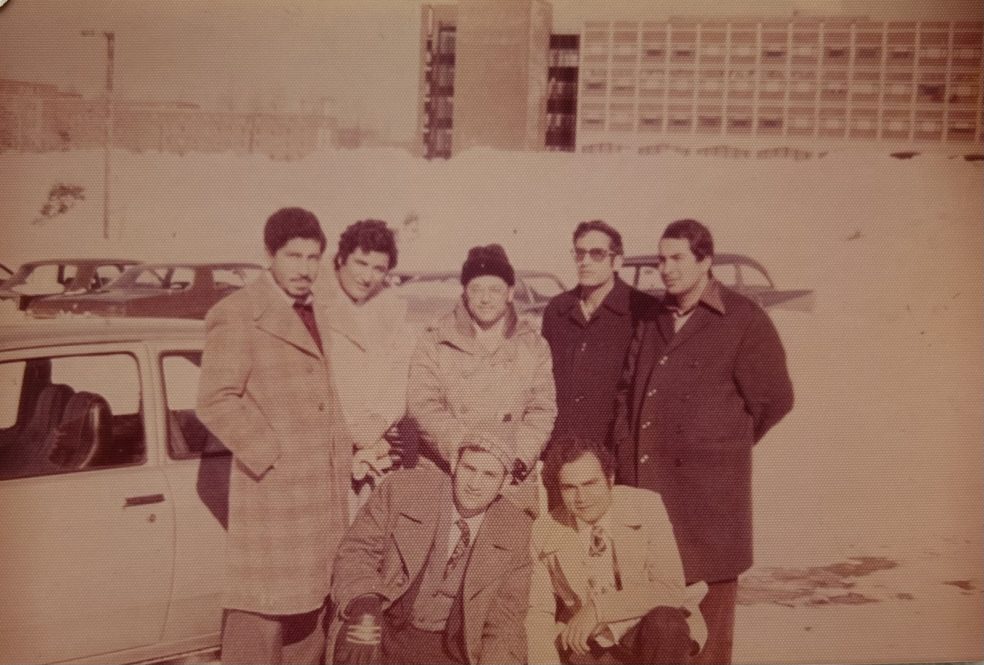The contributions of the Muslim community at UConn — from the Arabic language program, to partnerships with international universities, to the Muslim Student Association and the Islamic Center at UConn (ICUC) — are now so integral to the University that a newly arrived first-year student might not think twice about how they all came to be, says Nadine Noaman ’26 (CLAS).
But Noaman knows exactly how much work went into creating today’s community.
“The impact of these generations should not go unnoticed. We are part of UConn history,” she says.
Noaman is currently producing a docuseries entitled “Tracing the Trailblazers: UConn’s Muslim Community, Accommodations, and Activism Journey,” funded by the UConn IDEA grant and UConn BOLD Women’s Leadership Network.
The impact of these generations should not go unnoticed. We are part of UConn history.
For the project, Noaman is collecting oral histories from alumni and students who span the last half-century of Muslim life at UConn. The earliest interviewees were doctoral students at UConn in the 1970s; the most recent are current undergraduates, Noaman’s peers.
The series has three major aims, says Noaman: to preserve this rich community history, to highlight strides made by Muslims at UConn, and to track the impact of Muslim student activism on the university.
For Noaman, this history is personal. She herself is a third-generation leader in UConn’s Muslim community: both her maternal grandparents received their PhDs from UConn in the 1980s, and her mother received a Pharm.D. from the school. (Her aunt and uncle are also alumni.)

From the Ashes
In late 2023, a fire destroyed the Whitney House on the edge of the UConn Storrs campus – an iconic white building near Mirror Lake that had variously served as UConn’s International House and the home of the Rainbow Center over the past 50 years. The house was dismantled after the University deemed it beyond repair.
“One of the earliest memories that I have that sparked the idea [for ‘Tracing the Trailblazers’] was when my mom and I were passing by the International House when they were about to take it down,” Noaman remembers. “And she started to recall how impactful that building was on campus. She shared how there were communal prayers and Eid celebrations – so many initiatives and events took place there that brought communities together.”
“It’s unfortunate that the building is no longer physically there,” she continues. “In that moment, I realized I want to honor and preserve the legacy and experiences of these past generations at UConn.”
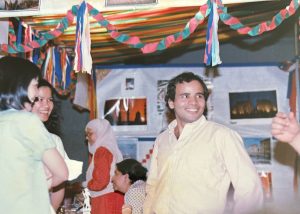
Though the International House is no longer standing, UConn’s Muslim community has found other venues for sharing space and strengthening community ties. The Islamic Center at UConn (ICUC) hosts daily prayers, holiday festivities, and weekly halaqas, or lecture circles, to discuss Islam-related topics. It also accommodates the Muslim Student Association (MSA), of which Noaman is the Islamic Education Chair.
“I love when I have the opportunity to do tabling; I get to talk to other amazing Huskies on campus and clear up misconceptions about Islam or provide accurate knowledge,” she says.
In addition, Noaman also currently works as a coordinator for UConn Salaam, a program within the Asian American Cultural Center. Salaam develops programming that increases accurate knowledge of Islam, strives to dismantle Islamophobia, and builds coalitions amongst various student organizations.
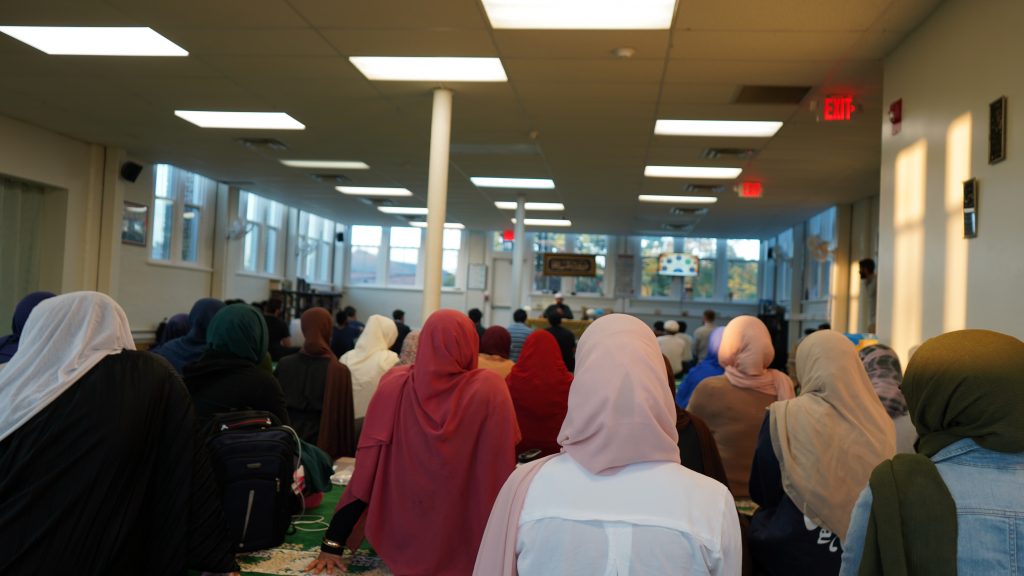
What Changes, What Stays the Same
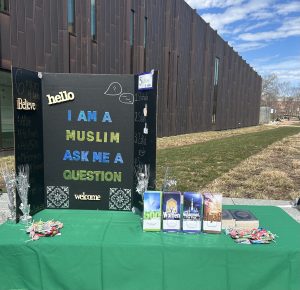
As a prominent player in these spaces, Noaman was curious about how Muslim life at UConn had evolved from the experiences of her grandparents to her own. While working on “Tracing the Trailblazers,” she learned that the reasons for this evolution were twofold.
There were societal issues: the early interviewees recalled hostile jokes about Muslims all living in the desert, while current students report having to counter misconceptions that Islam promotes violence. Though the trends changed over time, they all fall “under the same iceberg: lack of knowledge,” notes Noaman.
Second, there was the dynamic way the UConn Muslim community advocated for their needs, encouraging the University to be a more positive and inclusive place. Community organizing and solidarity established more accommodations for Islamic worship and holidays for generations to come.
Celebrating the Diversity of Islam
By engaging with the stories in “Tracing the Trailblazers,” Noaman says, viewers will be able to appreciate a rich array of perspectives and backgrounds.
“There is such diversity in our Muslim community – in one Friday prayer, we realized that we had over 40 different nationalities represented,” she says.
Muslim Huskies go on to make a difference for the University and the world, contributing in diverse ways, too.
“We are a religion of peace,” says Noaman. “There’s a strong emphasis on being active in our community and helping others. So, many of my friends are in fields like healthcare and engineering because they want to embody those specific Islamic values.”
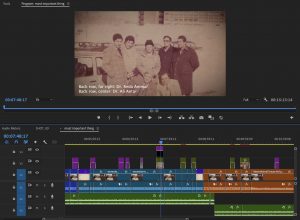
Noaman herself (who is double-majoring in Psychological Sciences and Spanish) wants to go into education – a field for which her coursework, student leadership, and independent research have well prepared her.
Once complete, “Tracing the Trailblazers” will be available to stream online, and Noaman hopes to be able to host an on-campus premiere as well. She extends her gratitude to God, as well as her family, peers, and the BOLD network and IDEA grant team who supported this independent project.
Having the funding was “affirming and motivating, and it gave me the resources to be detailed in the research aspect,” Noaman says. “I’ve done traditional research before, but embarking on this project has expanded my understanding of what I see as research, and so I’m grateful for this experience – times a gazillion-fold.”
